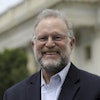NEW YORK (AP) — UPS was supposed to be looking for clues its brown trucks were being used to illegally transport untaxed cigarettes from upstate Indian reservations to customers throughout the state, but instead it turned a blind eye, say regulators, who've asked a judge to impose an $873 million penalty on it.
Over an eight-day federal civil trial headed for closing arguments Wednesday, city and state officials have argued that Atlanta-based United Parcel Service Inc., the nation's largest delivery company, had a corporate culture that favored sales opportunities over a responsibility to help New York enforce tax law.
Tobacco retailers located on upstate reservations were given price discounts for shipping in volume. Delivery drivers were allowed to accept iPads and other gifts from shippers. Account executives, whose compensation was tied to keeping big accounts, ignored signs that some customers signing delivery contracts dealt in cigarettes.
One UPS customer, Seneca Promotions, operated from the same single-family home near Lake Erie as a well-known cigarette shipper, Native Wholesale Supply, and was sending tens of thousands of pounds of packages to businesses with names such as Tobaccoville and Tobacco Town, according to records filed in the court case.
"UPS must be held accountable," lawyers for New York City and New York state wrote last month in a brief outlining what they said was a decade of misconduct. "It has inflicted widespread injury to the public health ... by willfully blinding itself to known criminal activity."
UPS says it followed the rules and can only do so much to police what its 1.6 million daily shippers send in sealed packages. In its legal filings, its lawyers said the city and state have offered no proof it "knew or consciously avoided knowing that any shipper was shipping cigarettes."
UPS has terminated contracts with shippers found to have violated the rules, spokeswoman Susan Rosenberg said.
"With our contracts, customers are bound to accurately represent the contents of their shipments," she said. "UPS won't assume any group of shippers is engaged in illegal activity."
The state and city impose some of the highest taxes on cigarettes in the country in an effort to halt tobacco use, which public health officials say kills more than 28,000 New York residents annually and costs taxpayers $10.4 billion in health care-related costs.
Native American reservations upstate have long been one way for smokers and black-market cigarette retailers to evade those taxes.
Despite years of enforcement efforts, some reservation cigarette businesses, which don't collect state tobacco taxes, are still shipping thousands of cartons of untaxed cigarettes annually to consumers.
In 2004, the city and the state targeted UPS for its role in those shipments and pressured the company into signing an agreement the next year with heightened compliance rules. A 2010 law barred the U.S. Postal Service from delivering cigarettes and created new restrictions and regulatory requirements for common carriers, like UPS.
City and state regulators, in the latest lawsuit, say UPS abdicated its compliance responsibilities.
The UPS manager in charge of ensuring the company wasn't shipping prohibited or dangerous items, including cigarettes, also was a member of the sales division, authorities said. The manager, they said in court, once spearheaded an unsuccessful plan that would have let UPS ship live snakes as long as shippers certified they weren't venomous.
Seneca Promotions had said on its invoices it was sending office materials and casino marketing materials, not cigarettes. UPS officials testified an audit of Seneca Promotions' shipments turned up nothing suspicious.
A company representative for Seneca and Native, Tricia Thomas, didn't immediately return a message seeking comment.
State regulators point to UPS employees' internal emails as proof the company not only could have done more to stop bad actors but also may have facilitated improper sales.
"I wish UPS would just take the high road, and say NO TOBACCO, NO ACHOHOL (sic), PERIOD," one account executive wrote. "We really need to have UPS clarify what is acceptable and what is not. If the policy has changed, then a whole lot more 'stuff' will hit the fan soon."




















